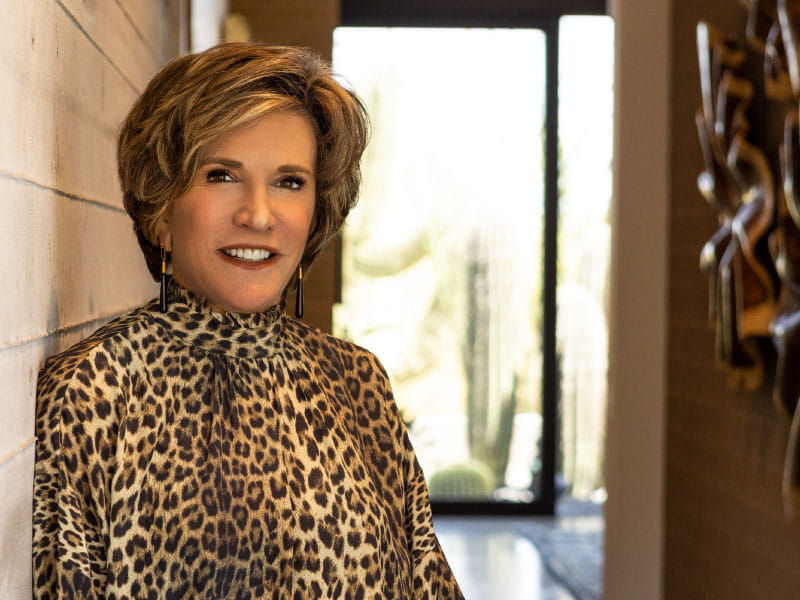Exercise kept her family history of heart disease at bay for decades – until she hit 65
By Tate Gunnerson, American Heart Association News

Jana Turner had always enjoyed a sense of control over her life. She never married or had children. Her career in commercial real estate remained her top priority, culminating in a rise to becoming a partner in her company.
She also took control of her health. Because her parents and all four grandparents had died of heart disease, she stayed lean, ate a healthy diet and remained active. For decades, she regularly golfed, biked, hiked and lifted weights. She'd also been taking medication to control her cholesterol.
In May 2020, Turner – then 65 – began experiencing chest pain while walking around her neighborhood. She sat on the curb for 15 minutes trying to catch her breath. She wondered if she was having a heart attack.
Turner's primary care doctor said an electrocardiogram showed no signs of trouble. He prescribed her medication for a digestive issue. Weeks later, the symptoms persisted. So she saw a gastroenterologist. A small ulcer was discovered. More symptoms led her to see a different gastroenterologist. He prescribed nitroglycerin and urged her to see a cardiologist.
The cardiologist ordered a nuclear stress test. The next morning, he broke the news: She had at least one blockage in her heart arteries.
Further tests to get a closer look inside her heart uncovered she had a greater than 99% blockage in her main coronary artery and significant blockage in another. She would need open-heart surgery for a double bypass.
"With a 99% blockage, you have no wiggle room," said Dr. Anne-Marie Feyrer-Melk, a preventive cardiologist who now treats Turner. "When those type of plaques get hot and rupture, you're just a heartbeat away from a heart attack."
Turner wanted a second opinion. She sobbed when her then-cardiologist told her there was no time for that. Adding to her worries, the hospital had implemented protocols during the COVID-19 pandemic, so she wouldn't be able to have visitors. "I had nobody to advocate for me or to help make decisions," she said.
The surgery went well. Six days later, Turner went home. She opted to conduct her own cardiac rehab program, walking up and down stairs and taking long walks around her neighborhood.
"My recovery was easy-breezy," she said.
According to Feyrer-Melk, Turner's lifelong exercise regimen helped her to recover so quickly. "Physically fit people are used to deep breathing and cleaning their lungs out with every breath and with exercise, so they tend to recover from surgery much easier," she said. "If she hadn't been working out in a gym for 45 years, she probably would have had either a heart attack or bypass surgery decades earlier."
About a year later, Turner moved from California to Scottsdale, Arizona. She made an appointment with a local cardiologist. Once again, she failed a stress test. Her bypass had failed, blocking the flow of blood.
In bypass surgery, a vein is taken from another part of the body and grafted onto arteries that feed the heart. In most cases, the vein will adapt to its new location. However, in up to 40% of cases, the vein can thicken and obstruct blood flow.
"That was the first time I felt like I was going to die," she said. "I couldn't get my arms around this." Her cardiologist was more optimistic. This blockage was less severe. Also, it didn't require another invasive bypass operation; it could be cleared with a stent placed during a non-invasive procedure.
Back to full health, Turner looks back to the origin of her problems and feels angry that it took so long to get a correct diagnosis, especially given her family history. She wants others to learn from her experience. "Don't ignore your symptoms," she said. "If you suspect something is wrong with your heart, it's important to push to see a cardiologist. It could save your life."
The ordeal also scraped away Turner's sense of control over her life. She's struggled with anxiety. She feels more nervous than she did in the past. She worries about the occasional flutter in her chest.
She also finds herself more emotional. She recently became misty-eyed when telling a group of friends how much she appreciated them. And tears flowed when her boyfriend, Robert, left Scottsdale to return to Canada, where he lives for part of the year. The tears were uncharacteristic – as is the use of the term "boyfriend," something she avoided even when in other relationships; the use of the term now amuses her friends.
Eager to reduce her stress, she has lessened her workload. She also splurged on a new home, trading a modest condo for a spacious house with mountain views in every direction. "I call it my big girl house, and I'm crazy about it," she said. "This experience has given me the freedom to live for today."
Stories From the Heart chronicles the inspiring journeys of heart disease and stroke survivors, caregivers and advocates.





